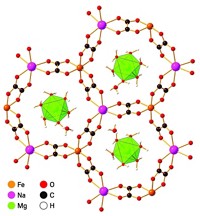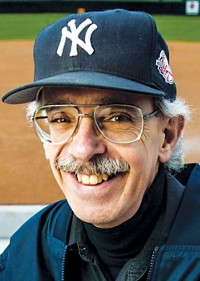Advertisement
Grab your lab coat. Let's get started
Welcome!
Welcome!
Create an account below to get 6 C&EN articles per month, receive newsletters and more - all free.
It seems this is your first time logging in online. Please enter the following information to continue.
As an ACS member you automatically get access to this site. All we need is few more details to create your reading experience.
Not you? Sign in with a different account.
Not you? Sign in with a different account.
ERROR 1
ERROR 1
ERROR 2
ERROR 2
ERROR 2
ERROR 2
ERROR 2
Password and Confirm password must match.
If you have an ACS member number, please enter it here so we can link this account to your membership. (optional)
ERROR 2
ACS values your privacy. By submitting your information, you are gaining access to C&EN and subscribing to our weekly newsletter. We use the information you provide to make your reading experience better, and we will never sell your data to third party members.
Synthesis
ACS Award for Computers in Chemical & Pharmaceutical Research
January 9, 2006
| A version of this story appeared in
Volume 84, Issue 2
Sponsored by Accelrys
The broad spectrum of chemoinformatics is the field of Johann Gasteiger, 64, a professor of chemistry at the University of Erlangen-Nürnberg, in Germany. His research interests are in the development of software for drug design, simulation of chemical reactions, organic synthesis design, simulation of spectra, and chemical information processing by neural networks and genetic algorithms.
"The basic idea behind his research is the development of computer programs that assist organic chemists with the solution of critical problems," writes Guenter Grethe, director of corporate communications and scientific affairs for MDL Information Systems, in San Leandro, Calif. "Over the last 25 years, his large research group has been involved in developing systems for organic synthesis planning, reaction prediction, lead discovery, and simulation of spectra, and the results have impacted the field of chemoinformatics greatly."
For more than 20 years, for example, the Gasteiger group has been developing the EROS (Elaboration of Reactions for Organic Synthesis) system and, most recently, EROS 7.0, in which the knowledge base and the problem-solving techniques are clearly separated. The knowledge base consists of methods for calculating important electronic and energy effects in organic molecules, as well as rules for evaluating the course of elementary chemical processes. Currently, the following organic reaction types are being investigated: electrophilic substitution, amide hydrolysis, and general hydrolysis.
Drug design is a very large scale and expensive process, Gasteiger notes. A series of programs and methods have been developed by his group to assist with a variety of problems. A major focus concerns finding and optimizing lead structures. For this purpose, new structure and physicochemical descriptors have been developed. In addition, the conformational flexibility of chemical structures is considered.
Another important topic for the group is the design of combinatorial libraries and the evaluation of similarity and diversity of large data sets of molecules. Combinatorial libraries are designed using the synthesis-planning program WODCA (Workbench for the Organization of Data for Chemical Applications). Data sets of chemical compounds are classified, and based on these classifications, the biological activity of unknown substrates may be predicted.
For research in infrared spectroscopy, the Gasteiger group has developed TeleSpec. The TeleSpec project has aimed to provide an information pool for infrared spectroscopy, to present sophisticated techniques for the analysis of infrared spectra, and to make them available via the Internet.
Gasteiger has pioneered the application of neural networks to solve chemical problems in such diverse areas as drug design, analytical chemistry, reaction classification, spectra simulation, and chemotaxonomy. His present interests center around the modeling of biochemical pathways and the prediction of the metabolism of drugs.
Finally, the Gasteiger group is among 15 academic institutions in Germany involved in a large, government-funded project developing multimedia tools for teaching chemistry. The teaching of chemoinformatics is of much concern to Gasteiger, and he is a coeditor of a textbook on chemoinformatics, as well as editor of the four-volume "Handbook of Chemoinformatics."
Gasteiger received a doctorate in organic chemistry from the University of Munich (1971). Following a postdoctoral fellowship at the University of California, Berkeley (1971-72), he taught at the Technical University of Munich. In 1994, he moved to the University of Erlangen-Nürnberg, where he cofounded the Computer Chemie Centrum. He is one of the pioneers of chemoinformatics in Germany and has produced more than 200 scientific publications in this field.
Gasteiger was a consultant to the Beilstein Institute and to FIZ Chemie Berlin, where he was the project manager for the development of the ChemInformRX reaction database. He is a member of the German Chemical Society (GDCh), the American Chemical Society, and the Molecular Graphics & Modeling Society. He is the recipient of the Gmelin-Beilstein Medal of GDCh (1991), the Herman Skolnik Award of the ACS Division of Chemical Information (1997), and the Mike Lynch Award of the Chemical Structure Association Trust (2005).
The award address will be presented before the Division of Medicinal Chemistry.—William Schulz





Join the conversation
Contact the reporter
Submit a Letter to the Editor for publication
Engage with us on Twitter